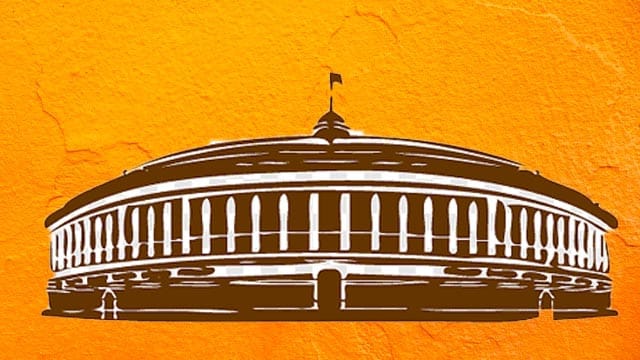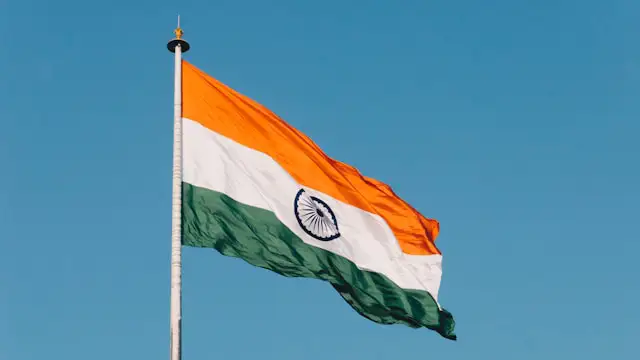Union Home Minister Amit Shah visited West Bengal on May 8th and 9th to take part in the birth anniversary of renowned Bengali poet Rabindranath Tagore and to attend the inauguration and foundation stone-laying ceremony for the Land Ports Authority of India (LPAI) and the Border Security Force (BSF) at India-Bangladesh border at Petrapole in North 24 Pargana district.
Shah also visited Tagore’s family home in Jorasanko, Kolkata, and the Vishwa Bharati University in Bolpur. During his visit, he lauded the poet for his contribution to Bengal and India. While he praised India-Bangladesh ties at the Petrapole border. He also lauded the BSF’s role in the Bangladesh Liberation War of 1971.
However, Shah’s visit was marred with controversies, as his words betrayed his Bharatiya Janata Party’s (BJP) political standpoints on both Bangladesh and Tagore, as well as his remarks against the people of the neighbouring country.
“India shares deep ties with Bangladesh. Our culture, religion, customs and lifestyle have been intertwined for thousands of years. No one can ever break our ties with Bangladesh. India has played a key role in Bangladesh’s history. The BSF has played a major role in the Liberation War of 1971”, news agency Press Trust of India (PTI) quoted Shah.
During the rundown to the 2019 Lok Sabha elections, when Shah was canvassing in West Bengal and the northeast, he had raised the bogey of kicking out “illegal Bangladeshi infiltrators”, whom he termed “termites”. He and his BJP have been alleging that many Bangladeshi Muslims have entered India. However, his ministry had claimed that no specific data regarding Bangladeshi infiltrators are available.
Bangladesh has been a favourite punching bag for the BJP and its parental body Rashtriya Swayamsevak Sangh (RSS). The RSS-led Hindutva camp claims that Bangladeshi Muslims are entering India illegally to change its demography and turn it into a Muslim country. However, they haven’t provided any information on how a country of mere 160m people can change the demography of the country that has the world’s highest population.
If the “culture, religion, customs and lifestyle” of Indians and Bangladeshis are so strongly “intertwined”, then why does the BJP vilify the Bengali-speaking Muslims, and why does Shah call them “pests”? What makes his party carry out pan-India propaganda that West Bengal has been turned into Bangladesh by Chief Minister Mamata Bandopadhyay?
But Shah’s hypocrisy didn’t end there. He praised Tagore and his work. Lauded the contributions made by the poet in the cultural and political life of Bengal and India. However, he didn’t mention that Tagore’s philosophy stood against fascism of any form. He disdained communalism and promoted harmony among the people, for which the RSS didn’t show any respect to the poet for decades.
Does Shah know that Tagore’s short story “Musalmanir Golpo” (The Tale of the Muslim Woman) would have been banned under the present dispensation because it touches an emotive tug, ie, inter-faith love, conversion into Islam and marriage between a Hindu woman and a Muslim man?
The fact that Tagore, who was first enchanted by fascist Italy’s progress but got agitated when he realised the real character of fascism, played a crucial role in the Indian anti-fascist cultural movement, can cause inconvenience to the present dispensation as the RSS’s second-in-command had praised the Nazis and hailed their genocides.
Following his Italy trip, Tagore wrote a letter to Charles Freer Andrews, a Christian missionary, educator and social reformer in British India exhibiting his disapproval of fascism. His letter was published in The Manchester Guardian and it said, “It is absurd to imagine that I could ever support a movement, which ruthlessly suppresses freedom of expression, enforces observances that are against individual conscience, and walks through a bloodstained path of violence and stealthy crime.”
Tagore also wrote to famous French intellectual Romain Rolland, who helped him realise the true colours of fascism and that he is purifying himself for the sin he committed by visiting the fascist state. “I have to pass through a purification ceremony for the defilement to which I submitted myself in Italy”, Tagore wrote to Rolland.
Shah also enjoyed a cultural show with Tagore’s songs and dance organised by a so-called ‘non-political’ platform headed by BJP stalwarts. However, it’s not clear how Tagore would have reacted as the audience chanted “Jai Shri Ram”, the saffron camp’s war cry, at every instance during and after the show.
Although Tagore may not have liked what Shah said and did, he would have been mum, or else even he could have been labelled as an “anti-national” for defying the Shahi tour. The Bengali community in Bangladesh and India would’ve suffered an irreparable loss had their favourite poet been imprisoned for being “anti-national”.
The editorial board of East Post is responsible for the columns published in the Editorial section. This column expresses the organisation's views.





